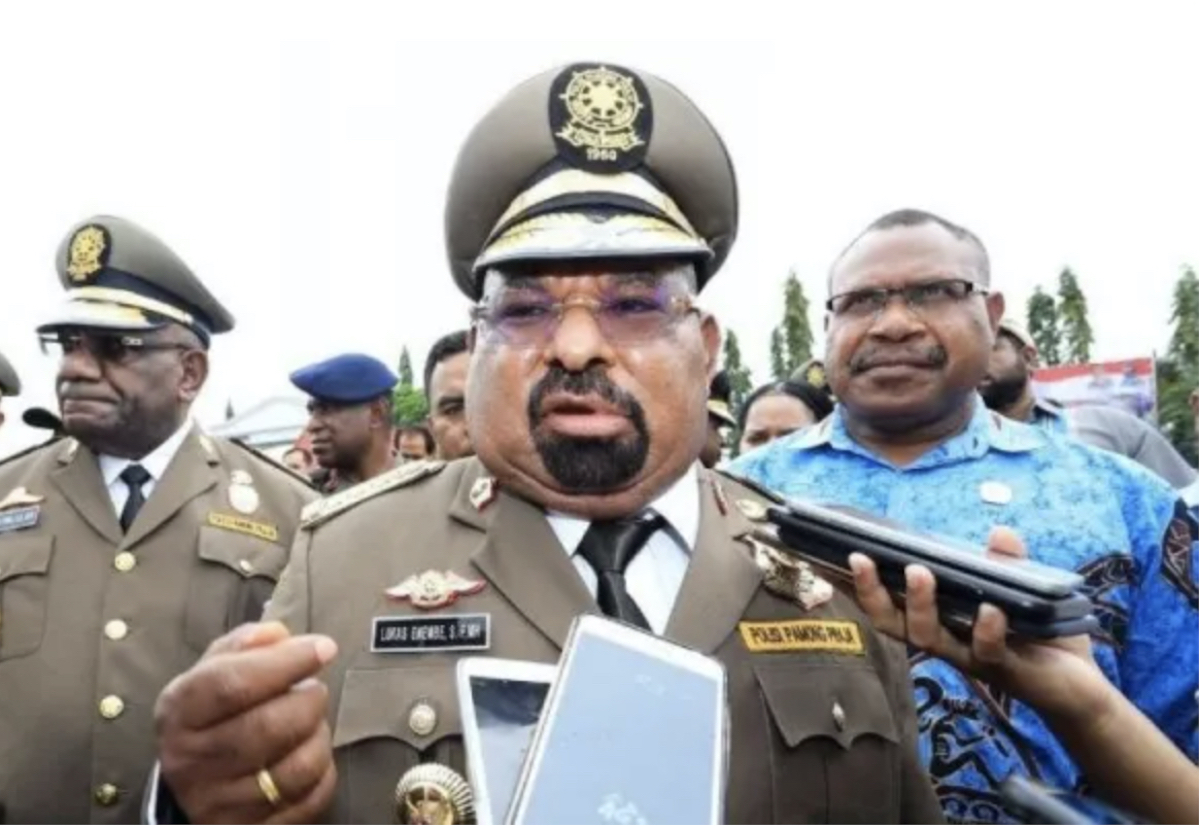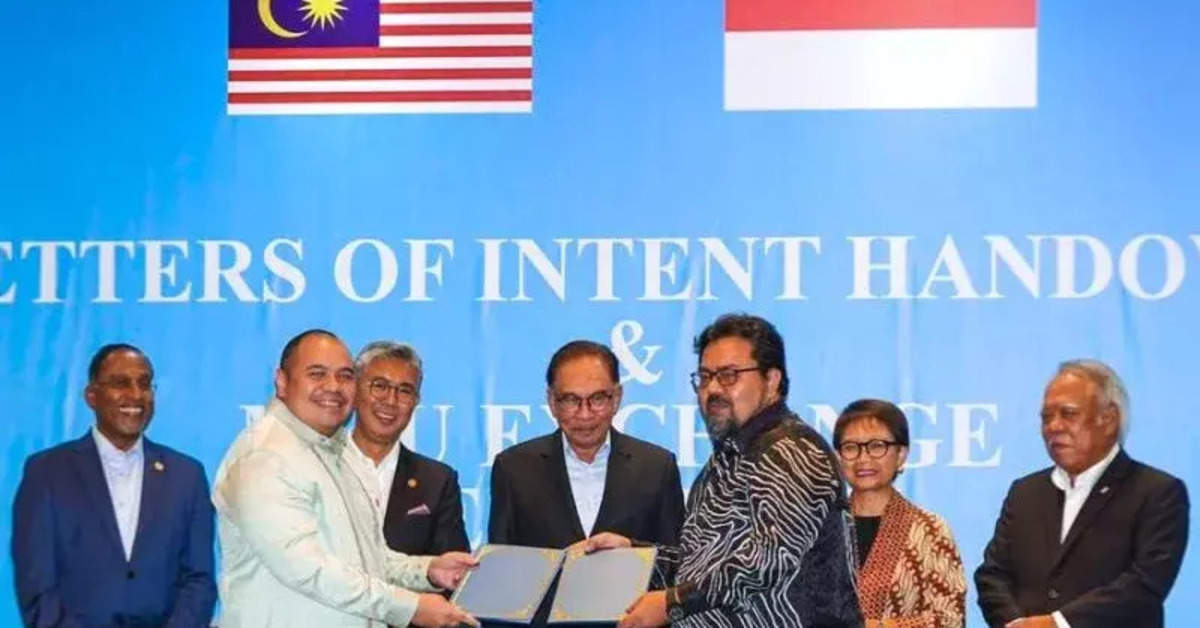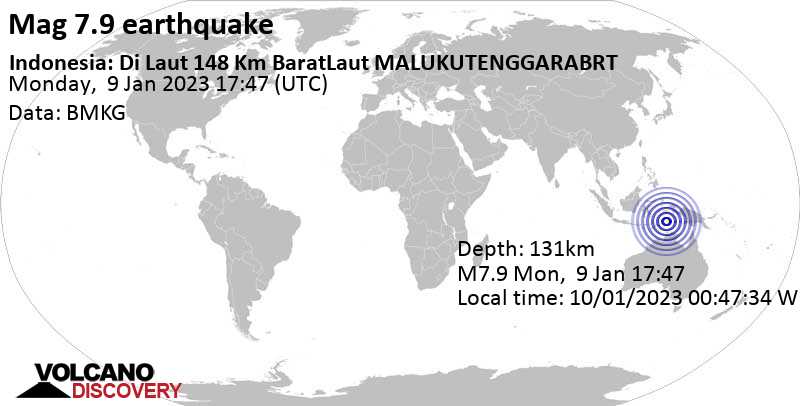JAKARTA – Security forces are on alert across Papua following the arrest of newly retired governor Lukus Enembe on charges of embezzling billions of rupiah from the provincial budget, the culmination of a politically sensitive investigation that has dragged on since 2017.
Enembe, a member of the majority Dani tribe and the first Papuan highlander to fill the post, was taken into custody at a restaurant outside the provincial capital of Jayapura on January 10 before being flown to Jakarta aboard a chartered aircraft.
Police fired teargas to disperse a mob of rock-throwing supporters who converged on the paramilitary Police Mobile Brigade (Brimob) headquarters and the Sentani airport, west of Jayapura, but the protest appeared half-hearted.
“Every person is equal before the law,” said President Joko Widodo, who appeared to take a personal interest in the case because of concerns that it could trigger riots among volatile indigenous Papuans. “It is a law enforcement process we must respect.”
Authorities had waited until the day Enembe ended his second and final gubernatorial term before making the arrest, which comes five years after he was first accused of the misuse of school scholarship funds, a charge that was never pursued.
Last September, the Anti-Corruption Commission (KPK) finally bit the bullet and indicted the governor on charges of misappropriating 560 billion rupiah (US$36.6 million), much of which allegedly went on spending sprees in casinos in Australia and Singapore, where he spent a lot of his time.
Investigators believe the bribes and gratuities Enembe received fed his well-known gambling addiction, but the casinos they say may also have served as a way for him to launder his ill-gotten gains in one of the more blatant cases of official malfeasance.
“The suspect has set an example as a reckless leader who, for whatever reasons, has shown indiscipline while holding public office, so he must face prosecution,” KPK chairman Firli Bahuri said in a statement.
The full extent of Enembe’s corrupt activities was revealed after the KPK requested the Financial Transactions and Analysis Center (PPATK) to examine his financial records during the three months he failed to show up for questioning, citing ill health.
The PPATK, formed in 2002 to track suspected money laundering and provide information on terrorist funding, found he had spent S$5 million (US$3.7 million) in one visit to a Singapore casino and another S$55,000 (US$41,500) on a watch.
He isn’t the only Papuan official accused of misappropriating state funds from one of the country’s poorest, yet resource-rich regions. Over the last three years, investigators have named more than 100 graft suspects across the region.
Most have escaped prosecution, but one who didn’t is Mimika district chief Eltinus Omaleng, arrested last August for causing losses to the state of some 21.6 billion rupiah over the construction of a half-finished church on Papua’s southern coast.
Mimika is home to Freeport Indonesia’s giant Grasberg copper and gold mine, where the illegal mining of residual gold in the tailings left over from the mine’s milling operations is worth $200 million a year. Freeport generates an annual $8 billion in revenues.
Official data shows 26% of Papua’s 5.4 million population live in abject poverty, despite the government channeling $66 billion to Papua and neighboring West Papua provinces since they were given special autonomy status two decades ago.
“More than 500 trillion rupiah ($33 billion) was distributed during Lukas Enembe’s tenure, but nothing happened,” political coordinating minister Mohammad Mahfud pointed out. “The people remain poor and officials continue their lavish lifestyles.”
“Enembe enjoyed a symbiotic relationship with the elite in Jakarta, but he proved to be increasingly unreliable,” says one analyst who closely follows Papuan affairs. “Clearly, they have now decided the time is ripe to cut him loose.”
As a member of former president Susilo Bambang Yudhoyono’s centrist Democrat Party, which sits outside the ruling eight-party coalition, Enembe was politically out of step with President Widodo from the beginning – and let him know it.
On the first two occasions, Widodo paid a visit to the province – in December 2014, just a month after his inauguration, and again in May 2015 – Enembe made himself scarce by flying to Singapore.
In September 2017, the governor was abruptly summoned to a meeting in Jakarta with National Police Chief Tito Karnavian, National Intelligence Agency director Budi Gunawan, and Papua-born North Sumatra police chief Paulus Waterpauw.
Looking ill at ease, the governor was persuaded to sign a 16-point declaration that included a declaration of loyalty to the Unitary State of the Republic of Indonesia and Pancasila, the state ideology, and a pledge to support Widodo and the ruling Indonesian Democratic Party for Struggle (PDI-P) in the 2019 elections.
The day before the meeting, Enembe had been interrogated by police over the scholarship corruption case. The charges were later quietly dropped without explanation, but the governor continued to be a thorn in the side of the Widodo administration.
Perhaps the last straw was his lukewarm support for the renewal of Papua’s special autonomy status in 2021, instead proposing a “special autonomy plus,” which provided more authority to the Papuan government.
The Democrats relieved him of his duties as head of the party’s Papua chapter when the latest corruption allegations were made public. At that time, protestors accused the government of persecuting Enembe for political reasons.
Sources familiar with the case say it could widen to include companies suspected of facilitating the 55-year-old governor’s corrupt activities, which included the use of private jets and a luxury Jakarta apartment.
News reports say Indika Energy chief executive Arsjad Rasjid, who also serves as chairman of the powerful Indonesian Chamber of Commerce and Industry (Kadin), has twice spurned a summons to meet KPK investigators over the company’s relations with Enembe.




































